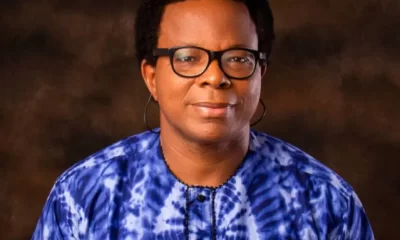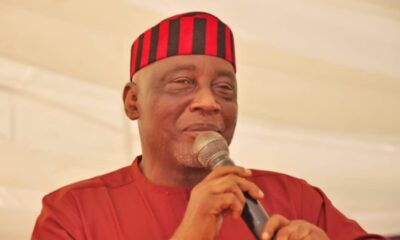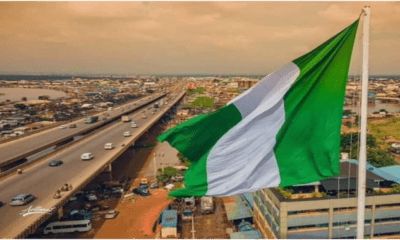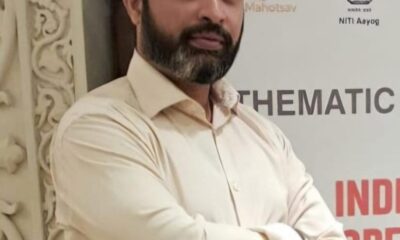National Issues
Reimagining A Just, Equitable And Functional Nigeria That Equally Works For All Nigerians -By Adekunle Theophilius
The mid 1980s brought about the gradual extinction of equality in Nigeria. In those halcyon days, government unity schools used to be predominant and there was no difference between the wards of governors, senators, bank executives, captains of industries, top government officials, members of the house of representative and even the President and the children of other Nigerians.
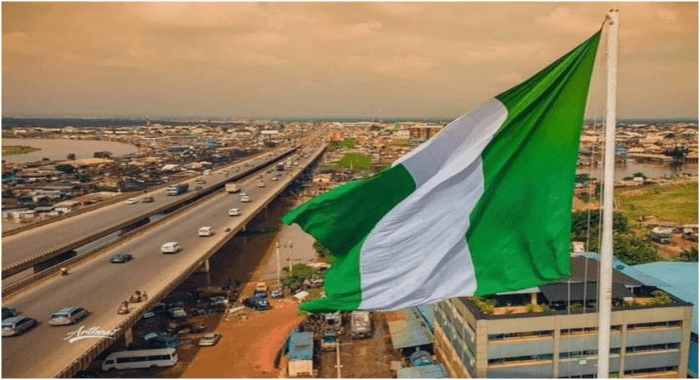
The past decade has witnessed the exacerbation of economic hardships, widening income disparities, social tensions, poverty, demographic changes, inequality gaps and political dilemmas with devastating impacts on the socio-economic and political standing of majorities of Nigerians. The resultant effects of these has been the extension of the already enormous gulf between the shockingly deplorable standard and quality of lives of the masses(99%) and the implausibly opulent lifestyles of politicians, political office holders, public officials, religious leaders, royal fathers, contractors, nouveau rich and their coterie of acolytes .
The utilitarian nature of any just society is anchored on the degree of fairness it displays through its ability to generate opportunities for both the rich and the poor, create access to constituents of the human development by both the disadvantaged and the bourgeoisies and treat people equitably regardless of social structure, origin and background.. As Nigeria navigates the intricacies and uncertainties of the post-pandemic world, the propensity to forge new connections across cultures, nations, and generations, to collaborate; exchange and devise urgent solutions and reimagining how institutions and policies can accelerate our future growth prospects has become very critical. Invariably, it is easy to affirm that most societies are far from being fair when basic socio-economic and political exigencies are analysed. Even the Nordic countries often viewed and touted as the epitome of equality and equity in the west cannot claim to be 100 percent fair in its dealings with its citizens. The principle of equality recognizes that all humans are equal before the law and accords equal recognition to the needs, experiences and interests of diverse people. Unequal treatment of people on the basis of origin, social status, class, ethnicity, religion, sex and culture is objectionable and negates basic moral, religious and legal codes. National constitutions usually obligate states to affirm equality on the basis of race, colour, sex, age, language, religion, political or other grounds; however, the general consensus is that these provisions are usually more on broadsheet than in reality
The challenges of the Nigerian society are innumerable and immeasurable. Nothing at all ever seems equal in Nigeria .The magnitude of differentials in income, wealth and opportunity and access to the above is massive in Nigeria. Nigeria is often regarded as the perfect example of an extremely asymmetrical and unequal society and an exemplar of a nation with a preponderance of unfair situations formal or informal and real or imagined where a very minuscule fraction of people have more ( and access to)opportunities than the large majorities. We can’t contest the fact that Nigeria’s nascent history is replete with unbridled materialism and a penchant for rabid acquisition which perpetually inhibits social solidarity, hinders common good, sows societal dissonance, .accentuates individualism and avarice, depreciates collectivism and distorts democracy and good governance. A lot of commentary is on the electronic media about how Nigeria ended up in this abyss of indescribable proportion and also on the way out of this nadir we have found ourselves. Despite the plethora of official and unofficial experts, professional analysis and countless reports, memorandums, constitutional conferences, policy papers etc, Nigeria is still in the wilderness of fashioning an actionable, acceptable and feasible blueprint to create a society that works for all regardless of ethnic, religious, cultural, educational and social inclinations.
The mid 1980s brought about the gradual extinction of equality in Nigeria. In those halcyon days, government unity schools used to be predominant and there was no difference between the wards of governors, senators, bank executives, captains of industries, top government officials, members of the house of representative and even the President and the children of other Nigerians. It may come as a shocker to the children of the previous presidents to learn that all the children of President, Aliyu Shehu Shagari went to public schools. The public and political officer holders of that era still had a modicum of moderation and circumspection. For instance, the world views and Spartan nature of Adekunle Ajasin, Balarabe Musa, Adamu Atta, Mohamed Goni and Lateef Jakande et al were the norm. Back then, there were an array of indefatigable social activists like Gani Fawehinmi, Aminu Kano, Tai Solarin, Nnamdi Azikwe, Alao Aka Bashorun, Ayodele Awojobi, Bala Mohammed, Mokwugo Okoye, Gambo Sawaba etc who fervently and consistently advocated for a fair, equitable and just Nigeria. But today, Nigeria’s social space has been dominated and polluted by influencers, skit makers, musicians, cross dressers, club owners, yahoo yahoo proponents and other upstarts with questionable origins and occupations
The evisceration of the hitherto lofty Nigerian ideals which started with the military coup of 1985 is at the core of our growing soullessness, unrestrained consumerism , stoic indifference, acquisition of wealth at all and any cost which has created room for the growth of perniciously indescribable levels of avarice and perplexing exhibition of cruelty towards our fellow men and women that now typifies our society. The sense of crisis has spurred the inescapability of genuine change such as calls for the scrapping of the senate, merger of public agencies, reduction in perks of office, demystification of public and political positions, grand scale redistribution of wealth and the liberalization of democracy. However, what is evidently absent is a serious and realistic ethical agenda and political will to do what will generate the desired and much needed outcomes which has further served to strengthen the grip of inequality over all facets of Nigeria
What is needed in Nigeria is the ability to cut off excess resources to avaricious civil servants, local godfathers, political office occupants, monarchs and public officials and channel same into sustaining a system of common good that builds on the core values of humanism, solidarity and democracy and encourages the incipience of more just and less inequitable societies that one way or the other works for all. The general prognosis in Nigeria no matter how undeniable is that Nigerians know and have a clear idea of what is ideal and feel the deleterious impacts of unfair practices in the society. But the trench like position and body language of the rich, powerful, politician, civil servant and privileged signifies the desire not to let off easily
The vision of a just society connects and speaks to its utility to all facets of Nigeria. Enabling constitutional commitment to a create a level playing ground, to sincerely bridge the inequality divide, to demonstrate concern to foster equality and institute far reaching initiatives to tackle entrenched corruption and ethnic, religious and gender injustices will eventually lead to creating fair and practical systems that will work for all. Working to sustain the above must be in sync with striving to achieve real equality of opportunity and shared prosperity. This is indeed primarily central and usefully vital to evolving a unifying and transformative political, social and economic milieus that can enable the Nigerian society provide the best for Nigerians. At the core of this perception that society should be fair is that its outcomes, results and impacts far outweigh other primordial considerations. Imagine a kind Nigerian society that is uniformly equitable to the rich, displaced, disadvantaged and the vulnerable,? Imagine a humane Nigerian society that treats everybody with respect and dignity? Imagine a caring Nigerian society where everybody can freely engage in productive activities that they desire and wish?. No Nigerian wants to be treated unfairly on any basis and they all desire equal chance or opportunity to actualize their potentials irrespective of circumstances.
Nigeria is a gargantuan pool of creativity and innovation ready to be unleashed on the world, but this can only be actualized if the underlying structure of the Nigerian economy and society can be fundamentally altered to enthrone fair and decent climes and systems that accommodate individual and collective interests and accords citizens a fair share of society’s wealth. At a time of great economic crisis, reimagining a real, just ad equitable Nigeria that equally works for all Nigerians entails affirming and working towards developing and sustaining a truly free, tolerant, and democratic society that embraces, protects and bolsters citizenry rights, good governance, true economic justice, accountability and representation, rule of law and people power.

